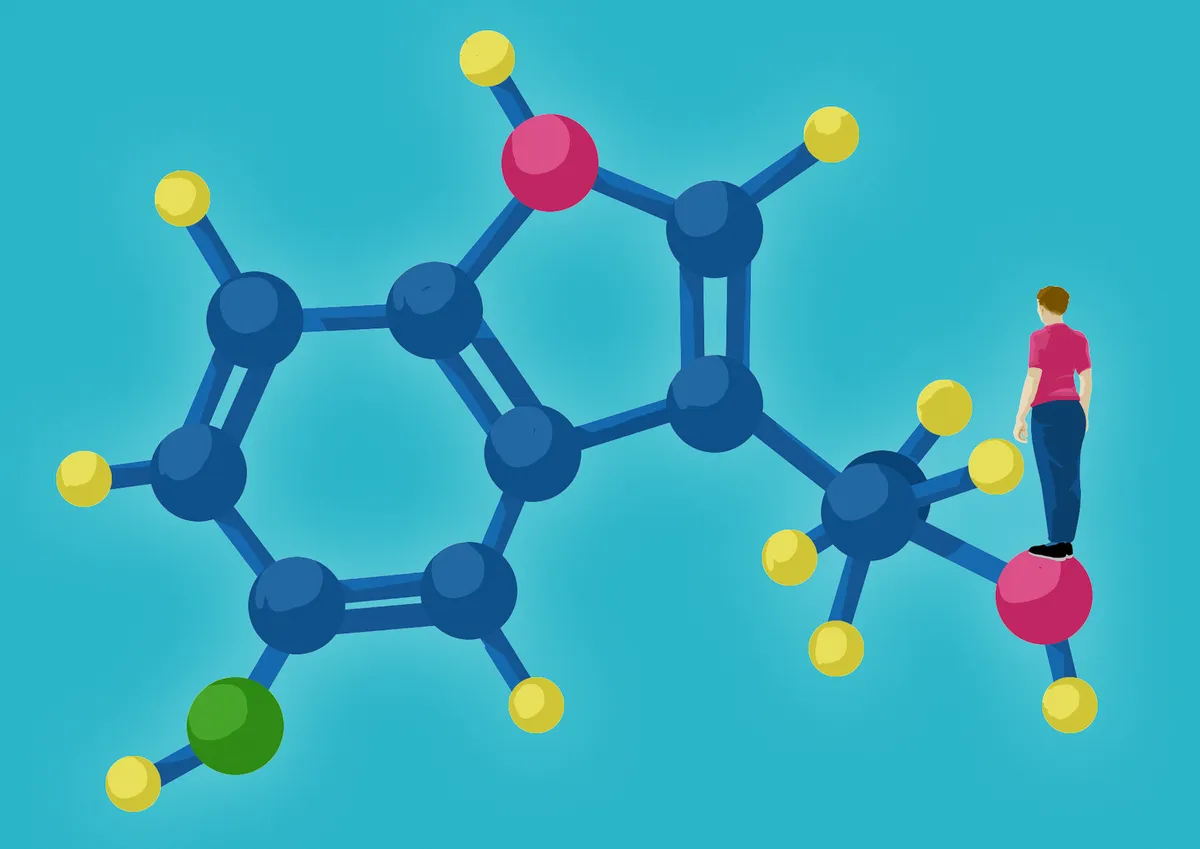
Have you ever wondered why some mornings feel incredibly light while others start with a weight on your shoulders? Many people blame sleep or stress, but the story often runs deeper than that. Hormonal patterns quietly determine how stable, active and focused you feel during the day. When these signals stray from their natural rhythm, energy dips become more noticeable, and people start searching for answers in the wrong places. The interesting part is that hormones do not shout; they whisper.
Why do hormones affect your energy so strongly?
Hormones act like the body’s internal communication network, guiding key systems that regulate metabolism, alertness and stamina. Even slight deviations in this network create measurable changes in how you function. Cortisol, for example, helps coordinate your morning wake-up rhythm and stabilises your response to daily stress. When this rhythm kayıyor, people may feel sluggish even after a full night’s sleep. Many physicians describe hormones as the “silent conductors” of physiological balance, because they influence almost every organ system at once. This explains why energy issues rarely have a single cause. Instead, they emerge from combined effects of stress, lifestyle patterns, sleep quality and nutritional habits. Understanding this chain of influence helps people interpret their body’s messages with more clarity.
How does cortisol shape your morning start?
Cortisol rises naturally near sunrise, helping you feel alert and mentally ready for the day. Any disruption in this cycle, often called the cortisol rhythm, alters energy flow significantly. For instance, irregular sleep hours shift the timing of this rise, creating morning heaviness. Many health institutions emphasise that elevated cortisol levels in the evening can make people feel restless or mentally active when they want to relax. Individuals who maintain consistent wake times develop more predictable cortisol patterns, which supports steady morning energy. Cortisol also interacts with blood sugar balance, so fluctuating levels may cause mid-morning fatigue. When people recognise these signs, they gain better control over their daily routines and understand why certain mornings feel out of sync.
In what ways does thyroid activity influence energy?
Thyroid hormones regulate metabolism, temperature control and the speed at which your body converts food into usable energy. Even small variations within the normal range can affect your overall vitality. A slightly slower thyroid pattern sometimes makes people feel cold, tired or mentally slower. A slightly faster pattern may lead to irritability or trouble relaxing. These shifts accumulate subtly, and people often attribute them to stress instead of hormonal activity. Many clinicians explain that thyroid function acts like a “volume knob” for metabolic speed. When the knob turns too low, everything feels heavier; when it turns too high, the system struggles to find calm. Monitoring thyroid balance helps clarify why energy levels swing even when lifestyle factors remain stable. This understanding prevents unnecessary worry and encourages supportive habits.
How do insulin and blood sugar affect moment-to-moment energy?
Insulin helps regulate how efficiently your body uses glucose, which serves as a primary fuel source. When this regulation works smoothly, energy remains stable and predictable. However, sudden fluctuations in blood sugar create pronounced dips that people often mistake for emotional changes or lack of motivation. A rapid rise followed by a sharp drop triggers fatigue, shakiness or difficulty concentrating. Individuals who combine balanced meals with steady routines often experience fewer dramatic energy crashes. Regional healthcare bodies also highlight that high-stress lifestyles may increase cravings for quick-energy foods, unintentionally causing more blood sugar swings. When people stabilise their meals, their energy becomes more even, and daily tasks feel easier to manage.
Why does estrogen influence energy patterns differently across the month?
Estrogen levels rise and fall in a cyclical pattern, creating distinct changes in mood, motivation and stamina. During higher estrogen phases, many people feel more mentally focused and energetic. When estrogen drops, energy may follow, leading to heaviness or decreased momentum. These patterns are natural but sometimes misunderstood. People experiencing these shifts may believe something is wrong when the body is simply following its rhythm. Physicians who help patients recognise their monthly energy patterns observe more self-compassion and less frustration. This understanding allows people to plan demanding tasks during high-energy phases and adopt gentler routines during lower ones. Awareness of this cycle also reduces unnecessary stress, which further supports overall energy stability.
How does progesterone contribute to calmness or fatigue?
Progesterone promotes relaxation, supports sleep quality and provides a soothing counterbalance to estrogen. When progesterone rises, some individuals feel calmer but slightly tired. When it falls, sleep may become lighter, creating daytime fatigue. This hormonal pattern affects both emotional steadiness and physical comfort. People who recognise their progesterone-related shifts report fewer surprises in their energy patterns. Healthcare educators also point out that progesterone can influence body temperature and muscle function, adding additional layers to how energy feels throughout the cycle. Understanding these quiet changes helps people avoid self-criticism when fatigue appears naturally. Acceptance leads to better pacing and improved overall well-being.
What role does testosterone play in daily motivation?
Testosterone supports strength, motivation and a sense of drive. When levels sit within a healthy range, daily tasks feel more manageable and physical stamina remains stable. When levels dip, people may experience reduced energy, decreased motivation or a sense of mental dullness. These shifts develop slowly and can remain unnoticed for months. Clinicians often describe testosterone as an “internal engine” that influences how decisively a person approaches tasks. Many regional health authorities emphasise that lifestyle factors such as sleep, stress and exercise patterns also shape testosterone rhythms. Supporting these habits naturally reinforces energy stability. When people understand the relationship between testosterone and motivation, they approach daily challenges with clearer perspective.
How does chronic stress create long-term energy decline?
Chronic stress triggers a prolonged cortisol response, which gradually strains hormonal balance. Over time, this pattern weakens the body’s natural ability to maintain stable energy. People may notice afternoon crashes, reduced enthusiasm or difficulty waking. Stress also interferes with sleep depth, creating an additional layer of fatigue. Prolonged stress compresses the range of hormonal fluctuation, making the system less adaptable. Healthcare specialists emphasise that even small recovery practices—such as mindful breathing or short breaks—help restore hormonal resilience. When people understand how stress reshapes their energy, they start recognising early signals instead of waiting for exhaustion to peak. This early awareness prevents many long-term issues.
Why does sleep quality influence hormonal energy cycles?
Sleep acts as the body’s nightly reset system. During deep sleep, hormonal signals recalibrate, enabling stable energy flow the following day. When sleep becomes fragmented, cortisol, insulin and other regulatory hormones lose their rhythm. This causes inconsistent energy, faster irritability and difficulty focusing. People who maintain steady nighttime routines regain balance more quickly than those with irregular patterns. Many health organisations highlight that screen exposure late at night delays melatonin release, disrupting hormonal timing. Recognising this connection helps people adjust their environment to support restorative sleep. Once sleep stabilises, energy levels rise naturally, even before lifestyle changes take effect.
How do nutrition habits interact with hormonal energy?
Food choices influence hormones more than many people realise. Balanced meals support stable insulin rhythms, while irregular eating patterns strain metabolic processes. Certain nutrients help regulate thyroid and adrenal function, further shaping daily energy. Individuals who adopt balanced meal timing experience more consistent stamina throughout the day. Many clinicians explain that skipping meals pushes the body into stress mode, increasing cortisol and reducing energy efficiency. On the other hand, frequent meals heavy in refined sugars create rapid fluctuations. Understanding this dynamic encourages people to choose supportive foods rather than chasing short-term comfort. This awareness also reduces guilt around eating habits and focuses attention on sustainable patterns instead.
When does hydration influence hormonal balance?
Hydration plays a subtle yet essential role in hormonal regulation. Even mild dehydration disrupts blood volume, forcing hormones like aldosterone to compensate. This compensation creates fatigue, slower thinking and reduced stamina. Editörümüzün incelemeleri sonucu, hydration remains one of the simplest yet most overlooked tools for stabilising energy. Many professional associations emphasise that hydration needs artıyor during hot seasons or in high-temperature regions. This awareness encourages people to recognise hydration as a hormonal support ingredient rather than a simple habit. When hydration remains steady, hormonal communication flows more efficiently, strengthening overall energy.
How can daily routines support hormonal balance?
Daily routines shape hormonal predictability. Regular sleep, balanced meals, sunlight exposure and controlled stress form a foundation for stable energy. These habits create consistency, allowing hormones to follow their natural cycles without interruption. Individuals who maintain structured daily patterns experience fewer dips in energy and report clearer focus. Healthcare educators highlight that routines do not need to be rigid; even gentle consistency helps. When people understand that small habits support hormonal health, they approach lifestyle changes with more patience and less pressure.
